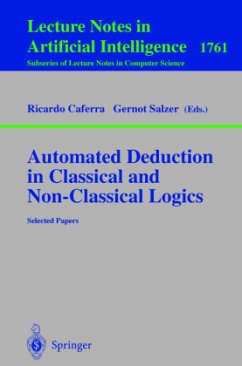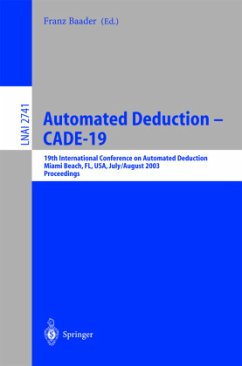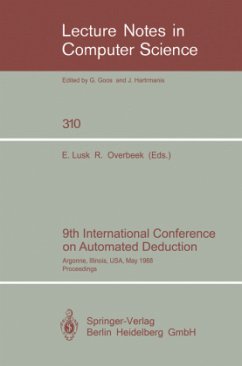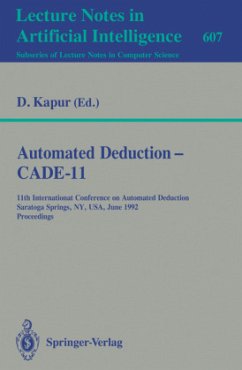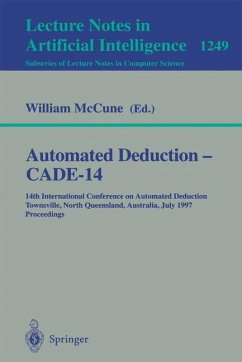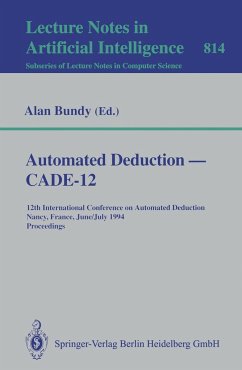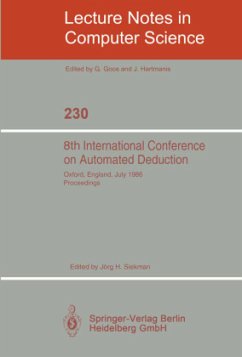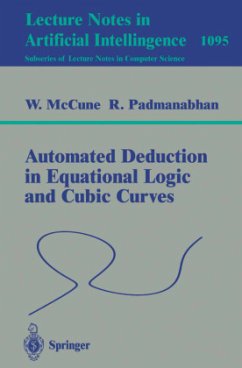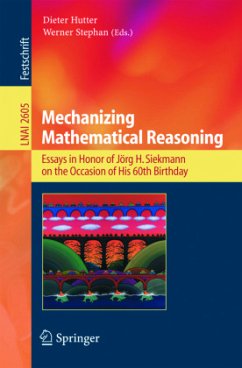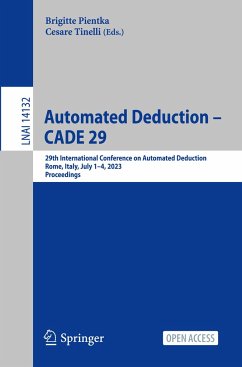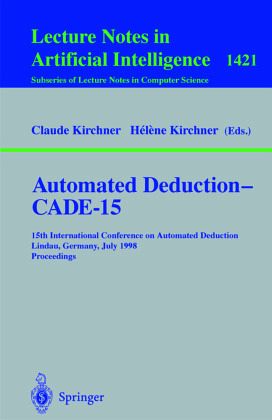
Automated Deduction - CADE-15
15th International Conference on Automated Deduction, Lindau, Germany, July 5-10, 1998, Proceedings
Mitarbeit: Kirchner, Claude; Kirchner, Helene
Versandkostenfrei!
Versandfertig in 1-2 Wochen
39,99 €
inkl. MwSt.

PAYBACK Punkte
20 °P sammeln!
This book constitutes the refereed proceedings of the 15th International Conference on Automated Deduction, CADE-15, held in Lindau, Germany, in July 1998.The volume presents three invited contributions together with 25 revised full papers and 10 revised system descriptions; these were selected from a total of 120 submissions. The papers address all current issues in automated deduction and theorem proving based on resolution, superposition, model generation and elimination, or connection tableau calculus, in first-order, higher-order, intuitionistic, or modal logics, and describe applications...
This book constitutes the refereed proceedings of the 15th International Conference on Automated Deduction, CADE-15, held in Lindau, Germany, in July 1998.
The volume presents three invited contributions together with 25 revised full papers and 10 revised system descriptions; these were selected from a total of 120 submissions. The papers address all current issues in automated deduction and theorem proving based on resolution, superposition, model generation and elimination, or connection tableau calculus, in first-order, higher-order, intuitionistic, or modal logics, and describe applications to geometry, computer algebra, or reactive systems.
The volume presents three invited contributions together with 25 revised full papers and 10 revised system descriptions; these were selected from a total of 120 submissions. The papers address all current issues in automated deduction and theorem proving based on resolution, superposition, model generation and elimination, or connection tableau calculus, in first-order, higher-order, intuitionistic, or modal logics, and describe applications to geometry, computer algebra, or reactive systems.





